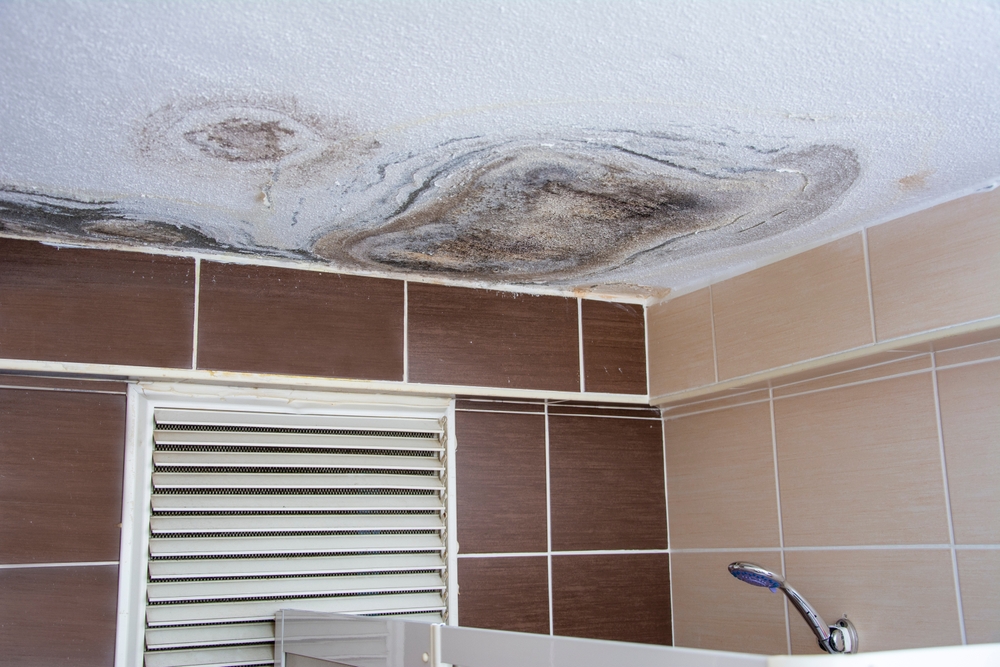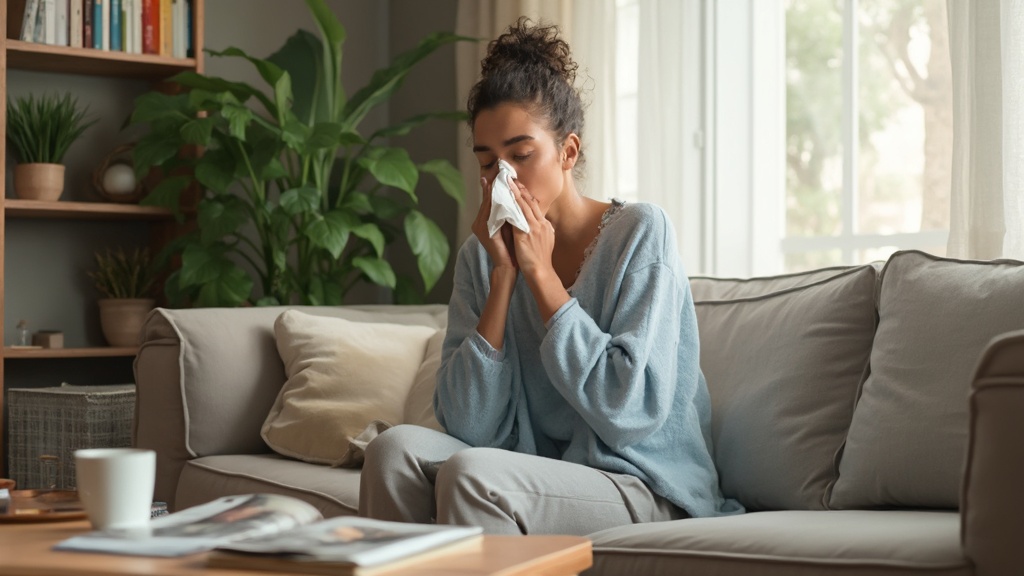7 Symptoms of Long-Term Exposure to Black Mold You Shouldn’t Ignore
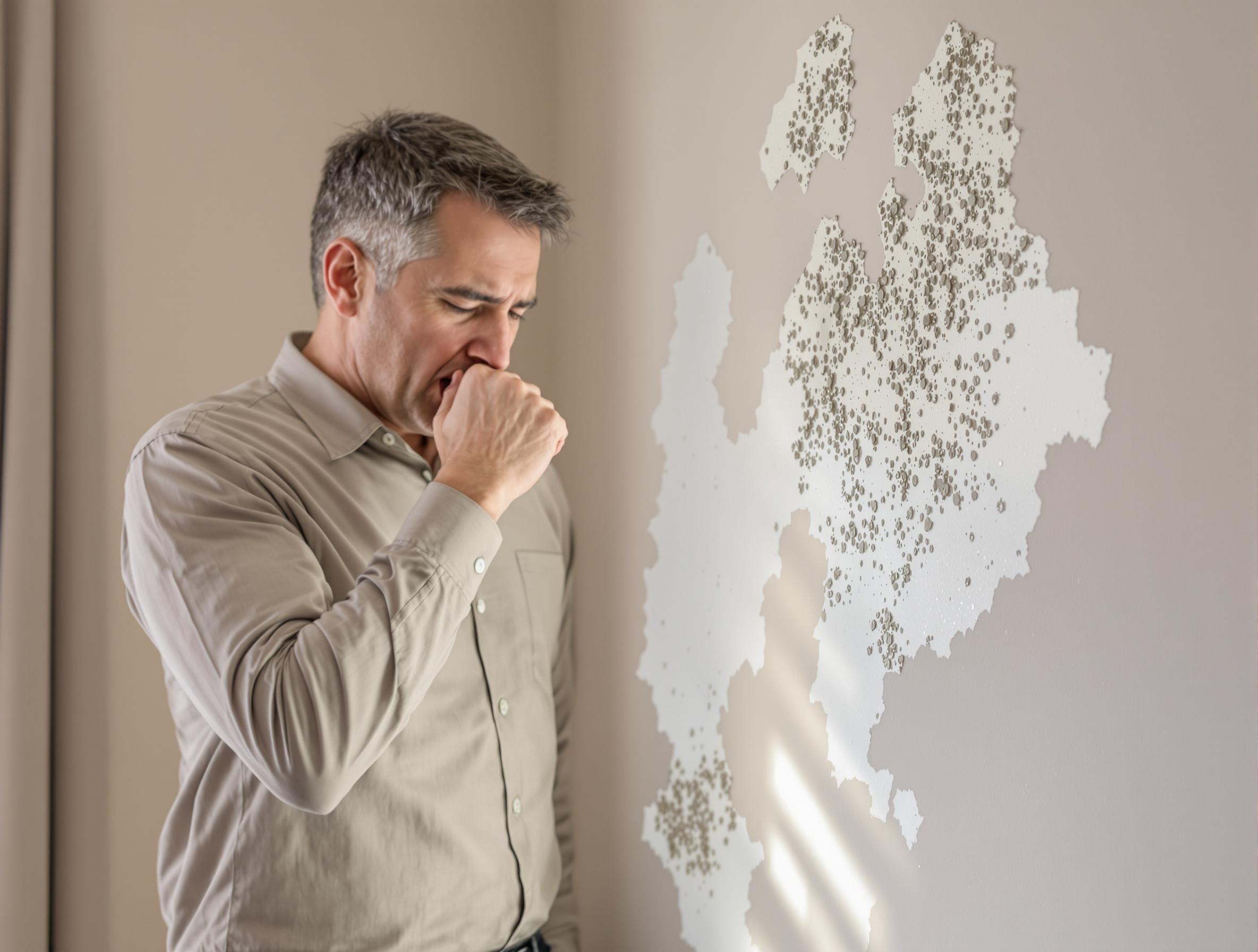
Key Takeaways:
- Prolonged exposure to black mold can lead to a range of health issues, including respiratory problems, skin irritation, and neurological symptoms.
- Identifying and addressing moisture issues in your home is crucial for preventing mold growth and safeguarding your health.
- Mobile Care Health offers personalized care through comprehensive mold exposure testing and tailored treatment plans to help you manage and alleviate mold-related health concerns.
Could those dark spots on your walls be affecting your health? Black mold, a common household concern, can impact your well-being when present over extended periods. This fungus, known scientifically as Stachybotrys chartarum, tends to grow in damp, warm spaces and can cause more than cosmetic issues in your home.
Prolonged contact with black mold may lead to various health challenges. These can range from persistent coughing and frequent sinus infections to unexplained fatigue and skin irritation. In some cases, it might even affect neurological function or influence your immune system’s performance. Recognizing these signs early can play a key role in maintaining your health.
Here at Mobile Care Health, we’re familiar with the nuances of mold-related health concerns. We offer personalized care through comprehensive testing and tailored treatments designed specifically to address the effects of ongoing mold exposure. Book a consultation today.
What is black mold, and why is it dangerous?
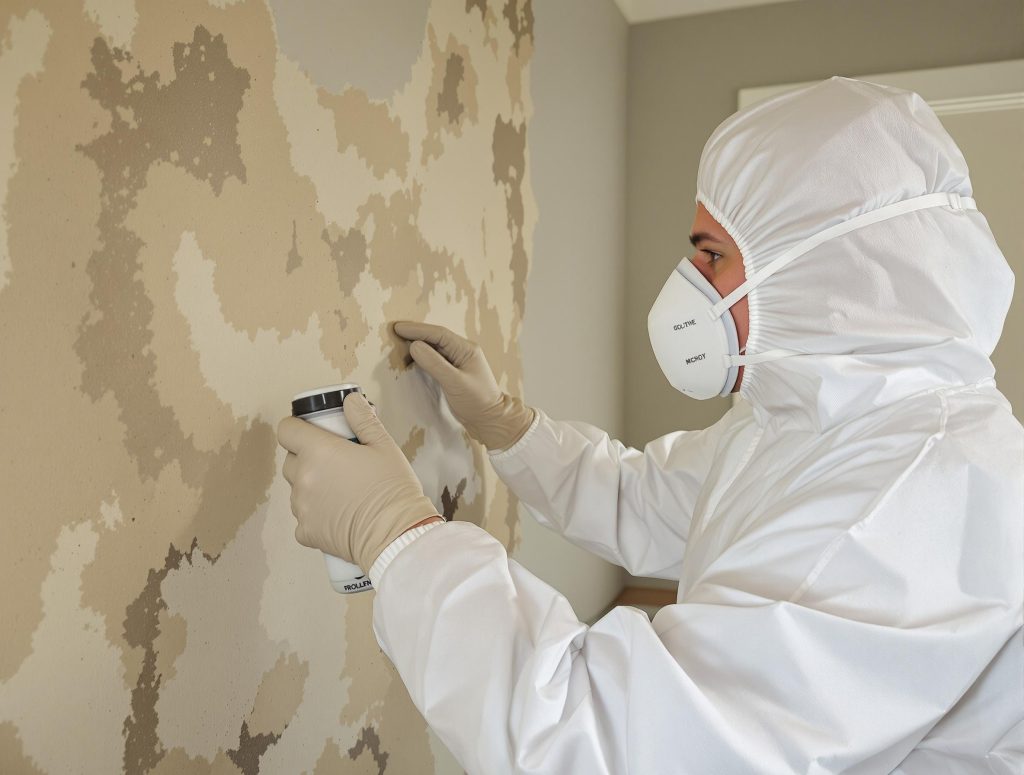
Black mold is a fungus that flourishes in damp, warm environments. This organism often takes root in materials with high cellulose content, including drywall, wood, and carpet. When present over extended periods, it can pose serious health risks to occupants.
Prolonged exposure to this mold may lead to mild allergic reactions to more severe respiratory issues. The spores released by this fungus can trigger immune system responses, causing sneezing, coughing, congestion, and eye irritation in sensitive individuals.
We understand how concerning the presence of mold in your home can be. It’s important to know that reactions can vary among individuals, with some experiencing more pronounced symptoms than others. In certain cases, exposure has been associated with memory issues and other neurological symptoms.
As climate changes lead to more frequent natural disasters and increased humidity in some regions, the risk of fungal growth in homes may rise. If you suspect harmful mold in your living space, we’re here to help. Our team offers professional assessment and personalized remediation strategies to safeguard your long-term health and provide peace of mind.
Chronic cough linked to black mold exposure
Black mold spores can significantly impact your respiratory system, leading to a challenging cough. When inhaled, these microscopic particles irritate the lining of your airways, triggering your body’s defense mechanisms.
This irritation often results in a dry, hacking cough that continues long after exposure. Unlike a common cold, a mold-related cough tends to intensify in damp environments and may be accompanied by wheezing or shortness of breath.
If you’re dealing with an ongoing cough, mold is a potential cause. To alleviate symptoms, start by identifying and addressing any moisture issues in your home. A dehumidifier can help create a less hospitable environment for mold growth. Regular cleaning with mold-inhibiting products can also help. If symptoms linger, don’t hesitate to reach out for professional help.
Recurring sinus infections from black mold
If you’re experiencing frequent sinus infections, black mold might be the underlying cause. Mold exposure can lead to chronic sinusitis, particularly in those with genetic susceptibility. Symptoms often include persistent nasal congestion, facial pain, and a reduced sense of smell. You might also experience headaches, fatigue, and postnasal drip. These issues can make simple tasks like breathing or sleeping comfortably a daily challenge.
Symptoms of mold-related sinus infections often include:
- Persistent nasal congestion that doesn’t seem to improve with typical treatments
- Facial pain or pressure around the cheeks. eyes, and forehead
- A reduced sense of smell or taste.
- In addition to these primary symptoms, you may experience headaches, fatigue, and postnasal drip, which can lead to discomfort and a chronic cough.
These recurring issues can make simple tasks, such as breathing or sleeping comfortably, a daily challenge, affecting overall well-being and productivity. Over time, untreated sinus infections can escalate, leading to more severe health complications, including sinus polyps or even asthma-like symptoms.
Chronic fatigue linked to mold exposure
Long-term exposure to black mold can cause persistent, unexplained exhaustion. This connection between mold and chronic fatigue syndrome (CFS) is gaining recognition in the medical community. Here’s what you need to know:
Identify symptoms: Experience debilitating exhaustion, sleep disturbances, muscle pain, and difficulty concentrating that don’t improve with rest
Recognize the link: Studies show 93% of CFS patients tested positive for at least one mycotoxin, a substance produced by mold
Seek professional assessment: Consult with specialists who can test for mold exposure and create a tailored treatment plan
Take action at home: Improve air quality by using HEPA air purifiers, fixing leaks promptly, and maintaining low indoor humidity levels
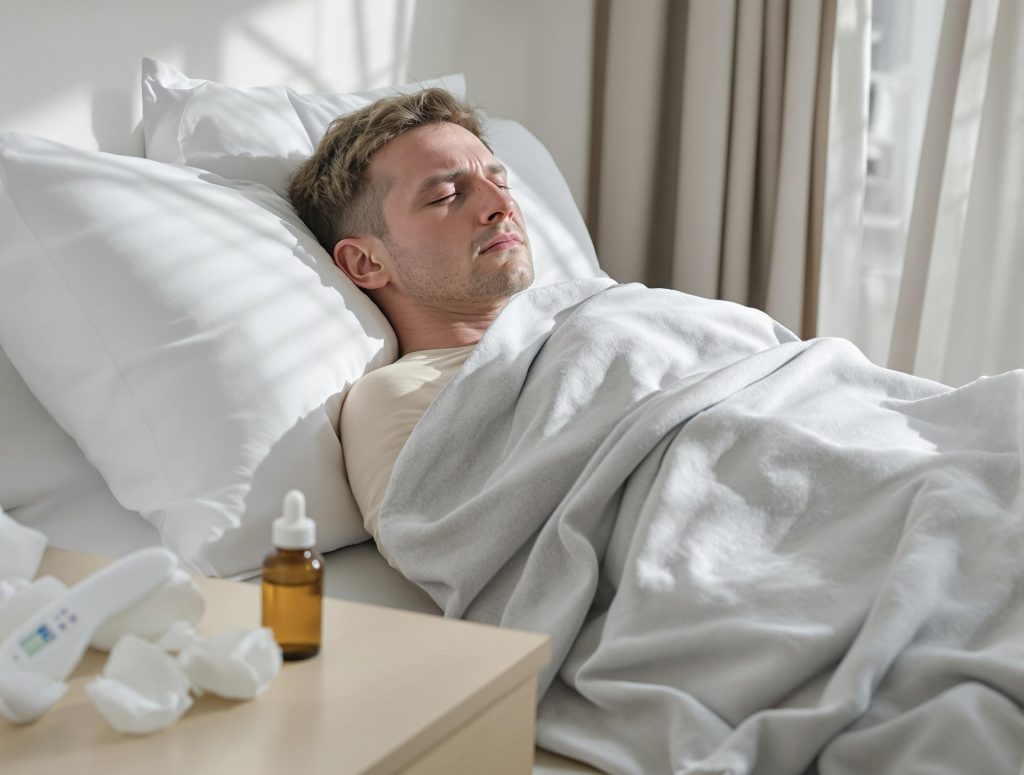
We understand how challenging chronic fatigue can be, and we’re here to help. If you suspect mold-related fatigue, don’t wait. Reach out to our team at Mobile Care Health for comprehensive testing and personalized care to support your journey back to vitality and well-being.
Skin irritation caused by black mold
Skin irritation is a common and often overlooked symptom associated with black mold exposure. When mold spores come into contact with the skin, they can trigger allergic reactions and inflammatory responses, leading to various uncomfortable skin conditions.
Symptoms of skin irritation caused by black mold may include redness, itching, rashes, or hives. In more severe cases, prolonged exposure can result in eczema-like symptoms, which can be both painful and persistent.
Individuals with pre-existing skin conditions or compromised immune systems are particularly vulnerable to black mold’s effects. For those who are genetically predisposed to allergies, even brief exposure can lead to significant discomfort.
In addition to the physical symptoms, the psychological impact of dealing with ongoing skin irritation can be substantial, potentially leading to anxiety or decreased self-esteem.
Neurological symptoms of mold exposure
Living in a space with black mold can affect more than just your breathing—it can also impact your brain and nervous system. Exposure to these harmful spores might lead to headaches, difficulty concentrating, memory issues, and even changes in mood. These effects often develop slowly, making them easy to miss or mistake for other health concerns.
A recent study highlighted how mold exposure can lead to brain fog, persistent tiredness, and widespread body aches, showing just how much mold can affect your overall well-being. We know how worrying these symptoms can be, especially when unsure of their cause. If you’re experiencing ongoing cognitive issues or unexplained discomfort and suspect mold might be the culprit, please don’t hesitate to reach out for help.
Here at Mobile Care Health, we’re committed to understanding your unique situation and how environmental factors like mold might be affecting your health. Our caring team offers thorough evaluations to pinpoint mold-related problems and create a tailored care plan for you. This could involve strategies to minimize mold in your environment, boost your cognitive function, and address your specific concerns.
Immune system suppression by black mold
Black mold doesn’t just affect your respiratory system; it can also weaken your body’s natural defenses. Exposure to black mold spores can suppress your immune system, making you more vulnerable to various illnesses and infections. This happens because certain molds produce harmful substances that can interfere with the normal functioning of immune cells.
As a result, you might find yourself catching colds more frequently or taking longer to recover from common ailments. Signs of a compromised immune system due to mold exposure can include recurring infections, slow wound healing, and persistent fatigue.
Chronic respiratory issues from mold exposure
Prolonged exposure to black mold can lead to persistent breathing difficulties that extend beyond occasional coughing or sneezing. These issues often begin with mild symptoms but can progress to more severe conditions over time.
We’ve seen how mold exposure can trigger or worsen asthma symptoms in many of our patients. This aligns with research indicating that about 2.5 percent of people worldwide with asthma develop an allergic reaction to molds in the Aspergillus genus, underscoring the potential severity of mold-related respiratory concerns.
Is urine mycotoxin testing as accurate as serum testing?
Urine and serum mycotoxin tests measure exposure differently, each with specific uses. Urine testing reflects recent exposure, as the body excretes toxins within days or weeks. However, it is not FDA-approved, less sensitive, and primarily indicates mold exposure through ingestion.
Serum testing can distinguish acute vs. chronic exposure by measuring IgE (acute) and IgG (chronic) antibodies, making it useful for identifying ongoing or systemic issues. While both tests have limitations—such as missing past exposures due to tissue accumulation—using both can provide a more complete picture of mold exposure and health impacts.
Taking action against black mold exposure
Being aware of the symptoms associated with long-term black mold exposure is essential for safeguarding your health. These indicators shouldn’t be overlooked, from persistent coughing and sinus infections to skin irritation and neurological changes.
We understand how concerning these symptoms can be, and we’re here to support you every step of the way. If you’re noticing any of these changes in your health, it’s important to seek professional guidance.
At Mobile Care Health, we’re committed to providing personalized care that addresses your unique situation. Our team specializes in comprehensive mold exposure testing and tailored treatment plans, ensuring you receive the individualized attention you deserve. We’re here to help you navigate the complexities of black mold exposure with advanced diagnostics and targeted therapies, always keeping your well-being at the forefront. Your health journey is important to us. Reach out today to schedule a consultation and take a confident step towards creating a healthier living environment.
Articles on this site are for general education and do not substitute for professional medical advice. Consult our providers for personalized recommendations.


